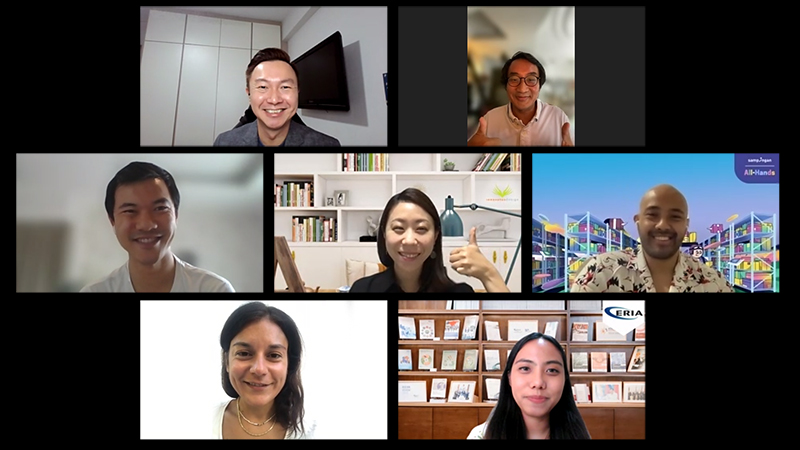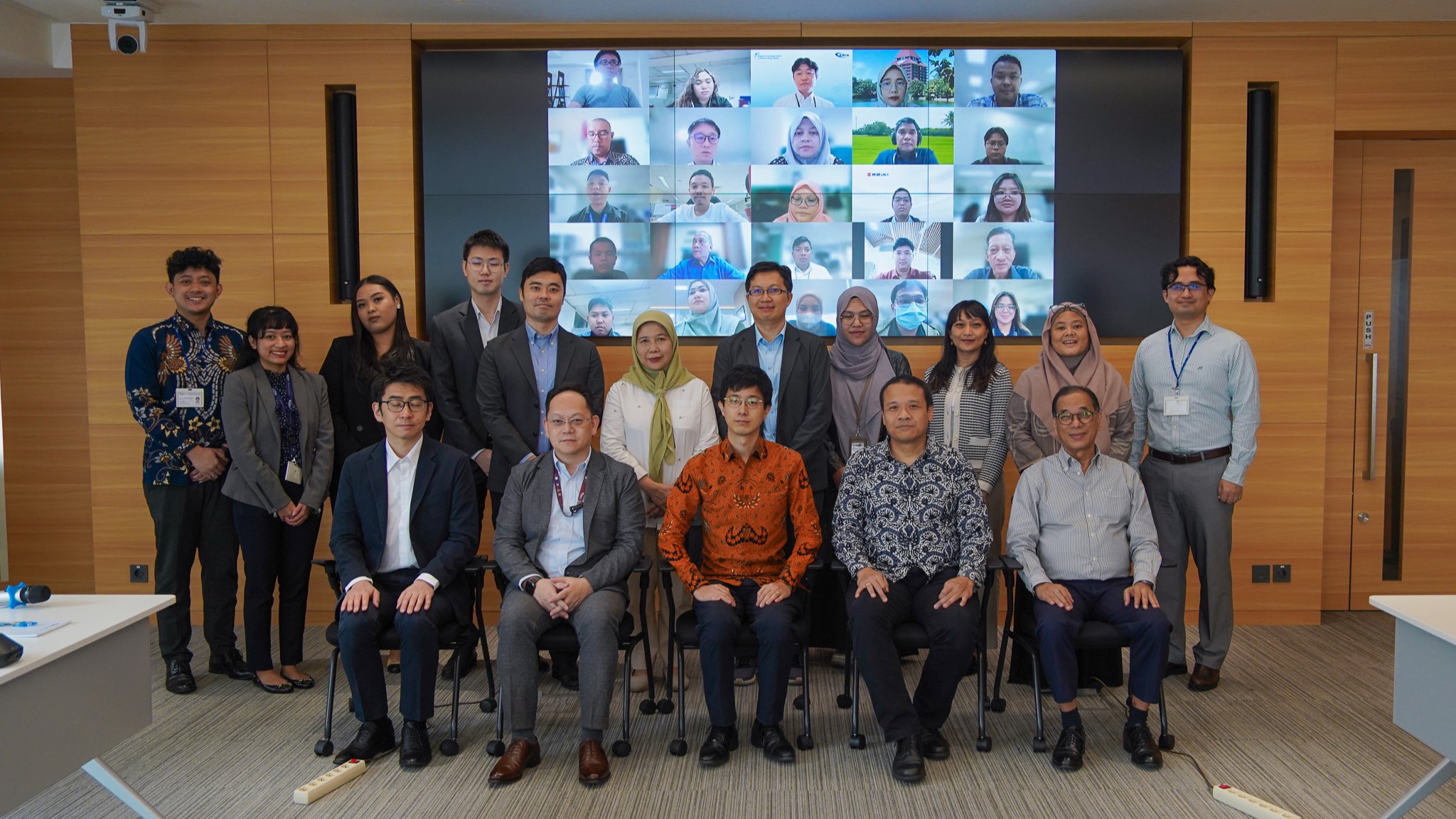Borderless Entrepreneurship: The Way Forward for Start-ups and Entrepreneurs, The E-S-I Webinar #7
Date:
31 August 2021Category:
NewsShare Article:
Print Article:
Jakarta, 31 August 2021: Over the past decades, technology adoption and the digital transformation have allowed entrepreneurs to be instantly connected with people, resources, and ideas all over the world. The growing global connectivity has fostered opportunities and access for entrepreneurs to translate their ideas into business that could reach millions of consumers in the global market while expanding their connections beyond borders. ASEAN and East Asia have exhibited strong economic development with high-growth and innovative enterprises over the years, and their entrepreneurship ecosystem has become a driver of the global innovation frontier. The COVID-10 pandemic has accelerated the trends towards borderless entrepreneurship with many new businesses trying to connect with global markets from the very beginning of the pandemic. However, borderless entrepreneurs are confronted by a number of challenges related to a lack of regulatory coherence across the region’s countries as well as a wide range of consumer preferences and behaviours.
The 7th episode of ERIA’s Entrepreneurship, Start-Up, and Innovation (E-S-I) webinar series with the theme ‘Borderless Entrepreneurship – Is that the future?’ was held on 31 August 2021 and attracted more than 200 participants from the Asia-Pacific region.
Four speakers from four countries shared their perspectives on borderless entrepreneurs:
- Laurent Tam Nguyen, Co-founder and General Manager Digital Mekong, Vietnam;
- Haewon Rah, Engagement Manager Techstars, Korea;
- Jirut Wattom, Technology Strategy Manager, Chemical Business, SCG Partner SPRINT; Accelerator, Thailand;
- Wisnu Nugrahadi, CEO and CO-Founder Sampingan, Indonesia.
Mr. Laurent Tam Nguyen, Co-founder and General Manager Digital Mekong, Vietnam shared his experience in creating Digital Mekong, an agile virtual market agency that addresses the need for an entrepreneurship freelancer market in Vietnam and ASEAN, with a flexible pricing scheme to allow access by SMEs in the region. This regional virtual platform now serves clients from all over the world and will continue to expand its borderless business moving forward. From his perspective, Covid-19 has shaped a profound mega trend where digitalization is now the way to do business. He highlighted two important opportunities that borderless entrepreneurship can offer: the ability to work without physical boundaries and to have more autonomy to determine the personal and professional life balance. As the trend of borderless entrepreneurship is escalating quickly, he emphasized several soft skills that all entrepreneurs should have which include resilience, adaptivity, empathy and transparency in managing start-up teams and building businesses.
Ms. Haewon Rah, Engagement Manager Techstars, Korea highlighted her experience in managing Techstarts as an accelerator to connect entrepreneurship with institutions and corporations within and outside South Korea. She mentioned that even before Covid-19, many start-up founders were aiming to accelerate their virtual business. For her, borderless entrepreneurs means that founders are able to expand their business beyond their region and set up teams that consist of both local and global talents. Haewon emphasized how investors would be likely to support and investment invest in start-ups that are interested to scale up their business globally. Furthermore, she shared two important factors for successful borderless businesses and entrepreneurship: 1) utilize entrepreneurship networks; 2) create small wins/steps, such as learning how businesses in the region work, which form the foundation for expansion to another region.
Jirut Wattom, Technology Strategy Manager, Chemical Business, SCG Partner SPRINT; Accelerator, Thailand, shared his experience as a borderless accelerator who found many start-ups in Thailand were struggling to commercialize their product in the science and technology sectors. Jirut mentioned that many entrepreneurs in Thailand are very interested not only to build Thailand’s start-up ecosystem but also to solve much bigger problems in the region. The pandemic has provided an opportunity for entrepreneurs to scale up their businesses faster as they can mobilize and operate their teams to do business locally while also accessing global markets. For Jirut, although physical interaction remains important for Thailand entrepreneurs, digitalization has now helped many entrepreneurs to climb up the competition ladder with their counterparts around the world. He highlighted how the borderless entrepreneurship ecosystem has given Thai entrepreneurs high exposure with clients or talents from various cultures and backgrounds.
Wisnu Nugrahadi, CEO and CO-Founder Sampingan, Indonesia shared his view on handling a start-up business in Indonesia which has a huge local market, many languages, and geographical challenges. He underlined the importance of using technology to close the knowledge gap and to connect companies with a higher quality workforce. In his perspective, being connected to the global market means more opportunity for companies to invest in the workforces of smaller cities. Before the pandemic, the main challenge was to attract experienced talents to Jakarta. However nowadays, the companies can recruit experienced talents from outside Jakarta and train them remotely.
The webinar was co-hosted by Dr Giulia Ajmone Marsan, ERIA Director for Strategy and Partnership, Ms Lina Maulidina Sabrina, Programme Officer, ERIA and Mr TJ Ooi, Founder of Curated Connectors, a Singapore-based start-up. During the Q&A session, speakers discussed how entrepreneurs can address the challenge of national regulations in their own country by being creative and agile as well as learning in-depth about the entrepreneurship eco-system in other countries and the region. As digitalization has now reduced the cost for testing products, the speakers encouraged entrepreneurs to always conduct market testing before scaling up their start-ups. Lastly, joining start-up support programs or accelerator programs are also important ways to expand networks and opportunities to scale up businesses.
ERIA’s E-S-I webinar series is organised under ERIA’s Strategy and Partnership Programme, funded by Australia.







